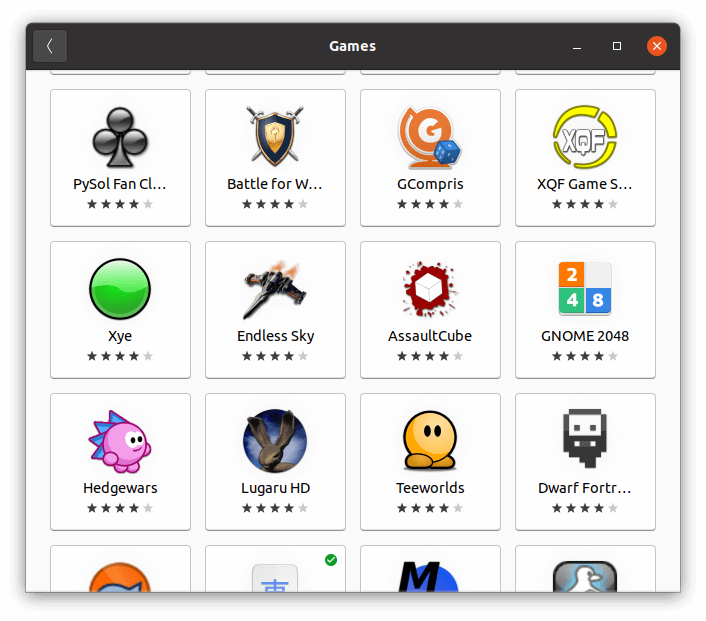Last Updated on May 22, 2022
This series offers a gentle introduction to Linux for newcomers.
“Can I game on it” is a frequently asked question we hear from Windows users toying with the idea of trying Linux for the first time. Well, the simple answer is yes!
In the eyes of many computer users, Linux is perceived as largely functional, mostly restricted to running servers, office tasks and web browsing. However, a wide and ever growing range of native Linux games are available, but given the range, there are a number of locations where you pick them up. Whatever type of game you like, there’s lots to choose from including the latest games as well as classics and remastered titles.
Ubuntu Software App
The obvious first port of call is the Ubuntu Software app. There’s a specific Gaming category where you’ll find lots of free and open source games.

The main virtue is that all the games are easy to install and there’s a good selection.
There’s way too many recommendations to list here. But here’s a few to get you started: 0ad (historical real time strategy), Xonotic (arena-style first person shooter), and Hedgewars (amusing turn-based artillery with fighting hedgehogs).
Pages in this article:
Page 1 – Ubuntu Software App
Page 2 – Steam Store
Page 3 – Emulators and more
All articles in this series:

Gaming on linux? Are you serious?
Well I am. Linux is vastly underrated as a gaming platform. Of course many big titles aren’t available but there’s still tons of great games out there.
A section about gaming distros would be nice. I’m using Drauger.
All these forks of Ubuntu are just a colossal waste of opportunity.
Are they really? It’s agreed there is often a lot of duplicated work when people fork distros and open source software in general. That also applies to proprietary software. In fact the implications are much worse with proprietary software.
When a proprietary product is abandoned, all the work is effectively lost. This happens so many times when a large multinational acquires a promising product and then just dumps it after 12-18 months.
With an open source project, when the original developer or team stops developing, there’s still a chance that someone else or a group will take the code and carry on with the program’s development. The code is not lost.